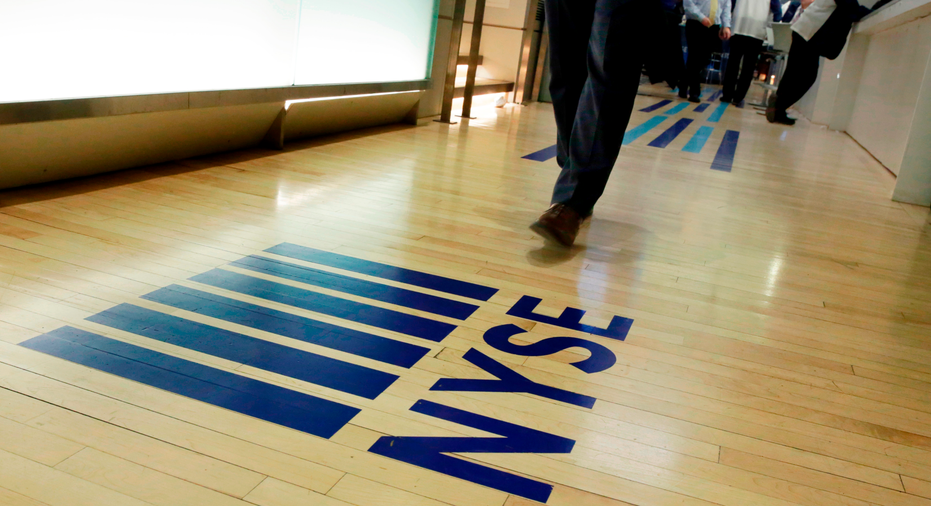Slumping tech companies weigh on US stocks

A steep slide in technology companies weighed on U.S. stocks Friday, pulling the market lower for the second day in a row.
Losses among retailers, packaged food and beverage makers and other consumer goods companies also helped weigh down the market. Banks rose as bond yields continued to climb, reflecting increasing investor concerns of higher inflation in the wake of rising oil and other commodity prices.
"Higher commodity prices, a little bit more inflation pressure and higher interest rates, that sort of takes some wind out of the sails for equity markets, at least short-term," said Edward Campbell, senior portfolio manager at QMA, a business unit of PGIM.
The S&P 500 index fell 22.99 points, or 0.9 percent, to 2,670.14. The Dow Jones industrial average slid 201.95 points, or 0.8 percent, to 24,462.94. The Nasdaq composite lost 91.93 points, or 1.3 percent, to 7,146.13. The Russell 2000 index of smaller-company stocks gave up 9.69 points, or 0.6 percent, to 1,564.12.
For every stock that rose on the New York Stock Exchange, two declined. Still, the indexes finished the week with a gain.
"This is just the market taking a breather here in an up month," Campbell said.
Bond prices continued to slide as bond yields rose. The yield on the 10-year Treasury rose to 2.96 percent. That's up from 2.91 percent late Thursday and the highest level since January 2014.
The pickup in bond yields helped drive bank shares higher. When bond yields rise, they drive up interest rates on mortgages and other loans, which can translate into bigger profits for banks. Regions Financial gained 4.1 percent to $18.89.
Technology stocks were the biggest contributor to the market decline, adding to the sector's losses for the week. It's still up 4.4 percent this year. Apple led the sector slide, finishing lower for the third day in a row. The stock lost 4.1 percent to $165.72.
Mattel was one of the biggest decliners among consumer-focused companies. The struggling toy maker slid 3.6 percent to $12.96 after announcing that CEO Margo Georgiadis is stepping down and is being succeeded by a company director and former studio executive.
Investors continued to weigh company earnings. While the busiest stretch of the current earnings reporting season begins next week, most of the S&P 500 companies that have reported results or outlooks so far have exceeded Wall Street's projections.
There have also been some big disappointments.
On Friday, Stanley Black & Decker slid 6.7 percent to $144.21 after the tool company said commodities costs rose in the first quarter and sales of outdoor products got off to a slow start.
Skechers USA also tumbled, sinking 27 percent to $30.70 after the footwear company issued a second-quarter forecast that was far weaker than analysts had expected.
Investors welcomed General Electric's latest results, which topped analysts' forecasts. Shares in the conglomerate climbed 3.9 percent to $14.54.
Crude oil prices reversed an early slide triggered by news that representatives from OPEC nations and allied oil ministers were meeting in Saudi Arabia to discuss their agreement to maintain cuts to production in a bid to keep prices up. Benchmark U.S. crude gained 9 cents to settle at $68.38 per barrel on the New York Mercantile Exchange. Brent crude, used to price international oils, added 28 cents to $74.06 per barrel in London.
"With commodity prices being up, that's just more signs of inflation pressure and something for the markets to worry about a little bit more," Campbell said.
The dollar rose to 107.60 yen from 107.41 yen on Thursday. The euro fell to $1.2283 from $1.2337. The pound weakened to $1.4023 from $1.4078 after the Bank of England's governor cast some doubts about the possibility of a rate increase next month.
Gold fell $10.50 to $1,338.30 an ounce. Silver dropped 8 cents to $17.16 an ounce. Copper was little changed at $3.14 a pound.
In other energy futures trading, heating oil rose a penny to $2.12 a gallon. Wholesale gasoline picked up 2 cents to $2.10 a gallon. Natural gas gained 8 cents to $2.74 per 1,000 cubic feet.
Major stock indexes in Europe closed mostly higher. Germany's DAX slipped 0.3 percent, while France's CAC 40 gained 0.2 percent. Britain's FTSE 100 rose 0.4 percent.
Asian stock indexes finished lower. Japan's Nikkei 225 slipped 0.1 percent. South Korea's Kospi lost 0.4 percent, while Hong Kong's Hang Seng index fell 0.9 percent.



















